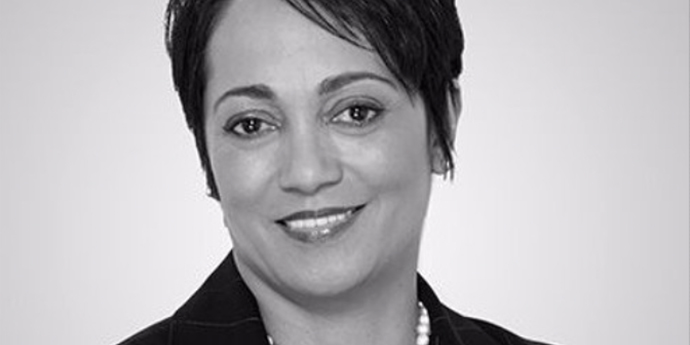A recent CEMS research report called "The Future-Forward Workforce" has delved into the evolving expectations and aspirations of new graduates entering the workforce.
By surveying recent graduates from CEMS programmes and gathering insights from senior experts among CEMS corporate and business school partners, the report offers a pioneering view of how young professionals envision their careers and what they seek from employers. It highlights the shift from traditional work models to more those that align with the personal and professional worldviews of a more conscious and fearless generation.
CEMS (the Global Alliance in Management Education) is a prestigious network that brings together 33 leading business schools, over 70 multinational companies, and 8 NGOs across six continents. This alliance offers the CEMS Master in International Management (MIM), a joint pre-experience master’s programme that combines academic rigor with practical business exposure.
“The GSB is proud to be the only business school in Sub-Saharan Africa to offer the CEMS MIM programme,” says Gadija Allison, the UCT Graduate School of Business’s CEMS MIM Programme and Corporate Relations Manager. “Graduates from the CEMS network are known for their global mindset, cross-cultural competence, and specialised leadership skills. And these all make them valuable assets in the modern workforce.”
Here are some insights uncovered and confirmed by The Future-Forward Workforce report, what it tells us about CEMS graduates entering the workforce, and what it means for their employers:
Lesson #1: They embrace office life but want fluid work schedules
Contrary to popular opinion, they still crave office life and a sense of professional belonging and are happy to commit to an employer in the long term. Susanne Iser, Director of Strategic Recruitment & Talent Acquisition at Beiersdorf AG, states, “This generation has a more holistic work concept, looking at work as an integral part of life.”
Graduates want work schedules to be fluid, dictated by demand rather than tradition. Babar Dharani, Senior Lecturer at the UCT GSB says: “They want to be able to work when they are most efficient, when they are passionate about doing the work. They could be sitting in a café and when something pops into their head, they want to be able to open their laptop and work. So, they are willing to work, that’s not a problem, but they don’t want to follow a routine that says, ‘It’s eight in the morning, I need to get up, feed my cat and go to work.’ That’s just not for them anymore.”
However, says Francesca Morichini, Chief HR Officer at Amplifon, this needs to be balanced with the business objectives of the company. “Young people are clear they want to find purpose in their work and enjoy it. Having an impact on their community is very welcome and helps us know what we need to do to engage with them. However, it is important to balance needs and wants with an understanding of the requirements of the business. There are some actions, contents, or ways of working that are required to make the business work and perform.”
Lesson #2: They are ready to lead the workplace revolution
Susanne Iser of Beiersdorf AG says, “[The graduates] bring a freshness and new and healthy ideas about the world of work. They are courageous, they know what they want, and can articulate it.”
Adaptability is a key trait for these graduates. Nicole de Fontaines adds, “At a time where adaptability reigns supreme, the exchange of insights and experiences becomes more invaluable than ever.”
They also see careers as a series of stepping-stones, not a predetermined path. Leonard Bussee, President of the CEMS Student Board, remarks, "Our graduates recognise the changing work environment and emerge confidently, eager to shape workplaces suitable for themselves and their peers."
Employers should embrace this holistic approach by fostering a work environment that values balance, purpose, and personal growth. Encouraging open dialogue about goals and integrating work as a meaningful part of life can attract and retain these confident, articulate graduates.
Lesson #3: Open exchanges co-create a culture
Francesca Morichini from Amplicons highlights the need for companies to listen to young professionals: “The desire to be valued and heard is something we perceive very strongly in our young people, and it’s critical for us to build this into our culture.”
Companies need to prioritise active listening and create a culture where young professionals feel valued and heard. By incorporating their input into business strategies, employers can align the needs of the workforce with organizational goals, fostering loyalty and motivation.
Nicole de Fontaines, Executive Director of CEMS, notes, "Our graduates reveal a workforce ready to embrace change, driven by purpose, and eager to balance work with personal growth."
Facilitating open communication about expectations and goals is crucial for unlocking the full potential of graduates. Employers should encourage transparent discussions and collaborative problem-solving to stay ahead in a rapidly evolving work landscape.
About CEMS – The Global Alliance in Management Education
CEMS is a global alliance with a presence on six continents, uniting 33 world-leading business schools, more than 70 multinational companies, and 8 NGOs who together deliver the CEMS Master in International Management. The CEMS MIM is a pre-experience joint master’s programme.
On graduation, students will have studied at two Alliance schools, taken part in a business project with a corporate partner, and speak three languages.
Students develop a global mindset, cross-cultural competence, and leadership skills through coursework, international exchange, and internship opportunities, graduating with a master’s degree from their home school and the CEMS MIM.
For 35 years, CEMS has led the way in the development of global management education. Through its unique blend of academic rigor, strategic corporate collaborations, and a commitment to ethical and socially responsible leadership, CEMS prepares the next generation of leaders who resolve to understand deeply the complexities of our time and who are eager to confront global business challenges and opportunities with humility and integrity. Each year, more than 1,300 graduates join the 21,000-strong global CEMS alumni network.








































